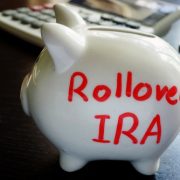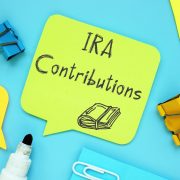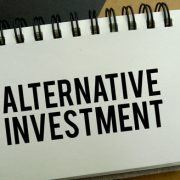Lessons Learned Part One: Self-Directed IRAs and Tax and Legal Compliance Problems
 Experience, they say, is the best teacher. But it’s a fool who learns by no other.
Experience, they say, is the best teacher. But it’s a fool who learns by no other.
That’s why we’re writing this post: A brief survey of difficult tax issues and compliance problems faced by others. Self-Directed IRAs and other retirement accounts provide a lot of advantages – but they aren’t something for rookie advisors to be dealing with. There are a number of tax and legal issues that come up that are unique to Self-Directed IRAs, 401(k)s, SEPs and the like. They shouldn’t pose a problem in the vast majority of cases, but at the margins, or for people who are careless or who receive poor advice from advisors with little or no experience in Self-Directed IRAs, seemingly small mistakes can lead to big consequences.
Unrelated Debt Income Tax and Self-Directed IRAs
When most people read about IRAs in the media, all they see is that IRAs allow you to defer income taxes on contributions and profits (for Traditional IRAs) or allow for tax-free growth (for Roth IRAs). But that’s not entirely true.
In some cases, assets in an IRA can generate something called unrelated business taxable income, or unrelated debt-financed income. Both of these are taxable.
These don’t ordinarily come up for most conventional IRA owners (that is, people who do not use Self-Directed IRAs) because Sections 512 and 514 of the U.S Code Chapter 26 exempt most securities from the requirement.
But if your IRA owns an interest in an LLC or other closely-held business that employs leverage to operate, the portion of earnings that can be attributed to debt could become taxable as unrelated debt-financed income.
In other words, it’s only earnings from your own contributions that are tax-deferred within a Self-Directed IRA, when it comes to real estate or closely-held business. Earnings attributable to other peoples’ money may be taxable, in the current year!
Many advisors don’t realize this, though, and their clients are blindsided by a tax liability.
K-1 earnings from partnerships and rental income from real estate IRAs are particularly likely to generate UDFI tax liabilities, so investors and their advisors should be on the alert to address them as they arise. That way, investors would know to file a timely IRS Form 990-T, declaring the unrelated debt-financed income, and avoid potential tax liabilities and problems.
Consequences for not understanding these compliance issues can be extreme, including penalties and taxes from the disallowance of the entire Self-Directed IRA. It’s important for taxpayers to use caution when investing and administering Self-Directed IRAs.
Furthermore, it’s vital to use advisors who have experience specific to Self-Directed IRAs. Many rookies and generalists do not have a detailed understanding of how Self-Directed IRAs work – leading to problems like the ones described above. American IRA is an administrator who has been in business for 10 years and has a team comprised of people who are both experienced investors and IRA experts. This blend of expertise ensures transactions flow smoothly as their team is uniquely qualified to communicate with professionals (advisors, CPAs, attorneys, etc.) about investments at all levels within a Self-Directed IRA. American IRA does not give investment/financial advice in relation to any investments.
Image by: presentermedia.com





